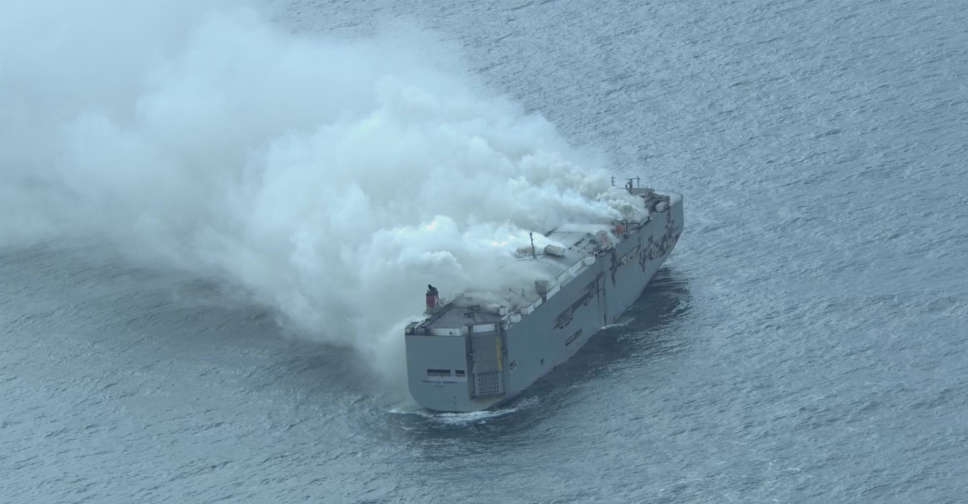
The fire which has been burning on a car carrier off the Dutch coast has lessened in intensity and salvagers have been able to board the ship to secure stronger tow lines, authorities said on Friday.
The fire on the Panamanian-registered Fremantle Highway, which was carrying new cars, resulted in the death of an Indian crew member and injury of seven others who jumped overboard to escape the flames.
Dutch water board Rijkswaterstaat said measurements by the salvage company showed that temperatures aboard the ship had dropped sharply on Friday morning, and while the fire is still burning, less smoke is now being generated.
The lower temperatures allowed salvage company staff to briefly board the Fremantle to attach new tow lines at the top of the ship, which allow better control of the vessel.
"Rijkswaterstaat is considering different scenarios for the next steps," the agency said in a statement.
Ship charter company "K" Line said that there were 3,783 vehicles on board the ship - including 498 battery electric vehicles, significantly more than the 25 initially reported.
A Tokyo-based spokesperson for K Line (Kawasaki Kisen Kaisha), which had chartered the vessel, declined to say anything about the car brands, including whether it included any cars from Japanese manufacturers.
The Dutch coastguard said on its website on Thursday that the cause of the fire was unknown, but an emergency responder is heard in a recording released by Dutch broadcaster RTL saying, "The fire started in the battery of an electric car".
EV lithium-ion batteries burn with twice the energy of a normal fire, and maritime officials and insurers say the industry has not kept up with the risks.
An investigation has been launched by the Panama Maritime Authority and the Netherlands is assisting the inquiry, the Dutch Safety Board has said.
The 199-metre (653-ft) Fremantle is drifting about 17 km from the northernmost Dutch coast, the coastguard said. It was travelling from Germany to Egypt.
The islands are on the northernmost tip of the Netherlands and comprise part of the Wadden Sea, a vast area of tidal flats and marshland stretching along Germany and Denmark that is on UNESCO's World Heritage list.

 Trump's Gaza plan triggers international condemnation
Trump's Gaza plan triggers international condemnation
 Argentina to quit World Health Organization: presidency
Argentina to quit World Health Organization: presidency
 Saudi Arabia says no Israel normalisation without Palestinian state
Saudi Arabia says no Israel normalisation without Palestinian state
 Hamas says Trump's 'absurd' remarks about Gaza could ignite region
Hamas says Trump's 'absurd' remarks about Gaza could ignite region
 Sweden mourns victims of country's deadliest gun attack
Sweden mourns victims of country's deadliest gun attack




